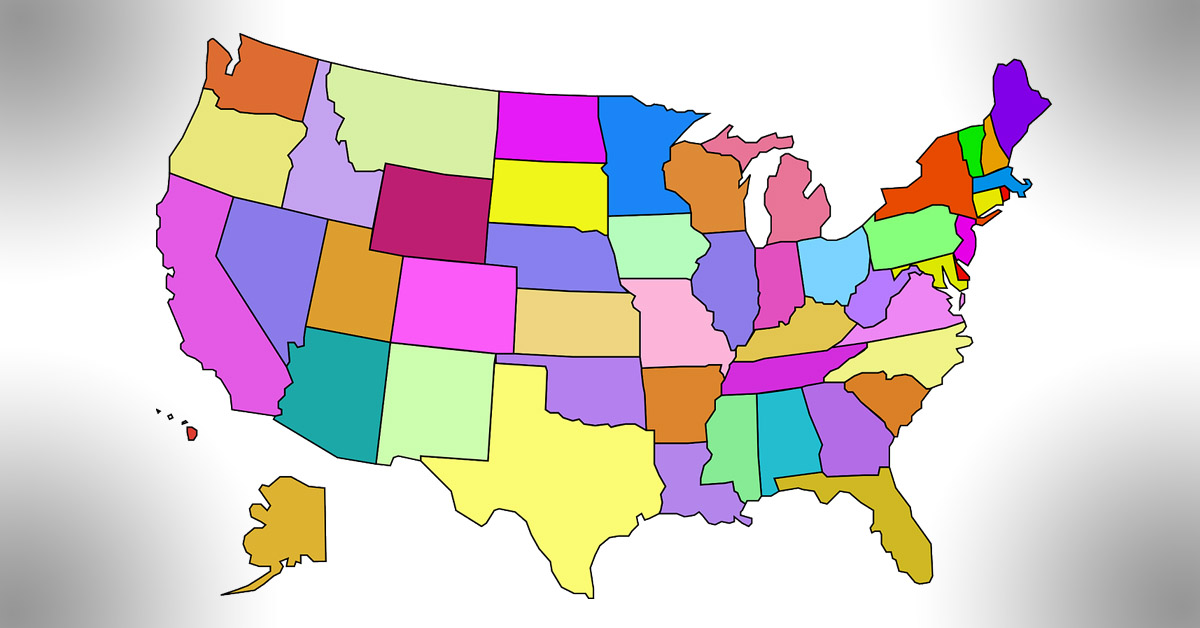

Mike Ballew – Engineer, author, and Eggstack founder.
Eggstack is an independent financial technology company located in Jacksonville, Florida. Our mission is to help you overcome uncertainty about retirement planning and inspire confidence in your financial future.

When it comes to comparing the quality of life in different states, one key ingredient is taxes. Each state has their own tax structure and they can wreak havoc on your finances.
Did you know that some of your Social Security retirement benefits may be taxed in retirement? That’s both at the state and federal level. Like everything with taxes, the amount is based on your income.
Surely your retirement savings won’t be taxed, right? Wrong. With the exception of Roth accounts, distributions from retirement savings will be taxed as ordinary income. The fact is, you may pay as much in taxes in retirement as you did when you were working.
Some states have a high income tax and a low sales tax, while other states have a low income tax and a high sales tax. How is a person supposed to compare?
Wouldn't it be nice if there was one number that represented a state’s combined income taxes, property taxes, and sales taxes? Guess what, there is! It’s called tax burden.
The tax burden is a measure of the percent of the average person’s income that goes to state income taxes, property taxes, and sales taxes. It’s basically one-stop shopping for all your state tax needs.
It's important to distinguish between tax rate and tax burden. Tax rate is the number multiplied by the value of an item being taxed to arrive at the tax. Tax burden is the tax rate applied to the average person’s income and use of the taxed item. The tax burden will always be less than the tax rate because the tax burden represents a percentage of the average person’s income.
If you see your state on the list, before you get too twisted out of shape keep in mind the analysis is limited to taxes. It does not take into account other important factors such as the cost of living, crime rate, and climate.
| Overall Rank | State | Total Tax Burden | Property Tax Burden | Income Tax Burden | Sales Tax Burden |
|---|---|---|---|---|---|
| 1 | New York | 12.47% | 4.36% | 4.72% | 3.39% |
| 2 | Hawaii | 12.31% | 2.74% | 2.86% | 6.71% |
| 3 | Maine | 11.14% | 5.33% | 2.52% | 3.29% |
| 4 | Vermont | 10.28% | 4.98% | 2.07% | 3.23% |
| 5 | Connecticut | 9.83% | 4.24% | 2.92% | 2.67% |
| 6 | New Jersey | 9.76% | 4.88% | 2.36% | 2.52% |
| 7 | Maryland | 9.44% | 2.66% | 4.21% | 2.57% |
| 8 | Minnesota | 9.41% | 2.89% | 3.11% | 3.41% |
| 9 | Illinois | 9.38% | 3.66% | 2.27% | 3.45% |
| 10 | Iowa | 9.15% | 3.40% | 2.41% | 3.34% |
Again, the analysis focuses exclusively on taxes. Obviously, there are other important factors to consider, including:
It’s a lot to consider. If relocation is on your radar, you might want to check out Top 10 Factors to Consider when Relocating.
Source: Tax Policy Center
Photo credit: Pixabay Eggstack News will never post an article influenced by an outside company or advertiser. Our mission is to help you overcome uncertainty about retirement planning and inspire confidence in your financial future.